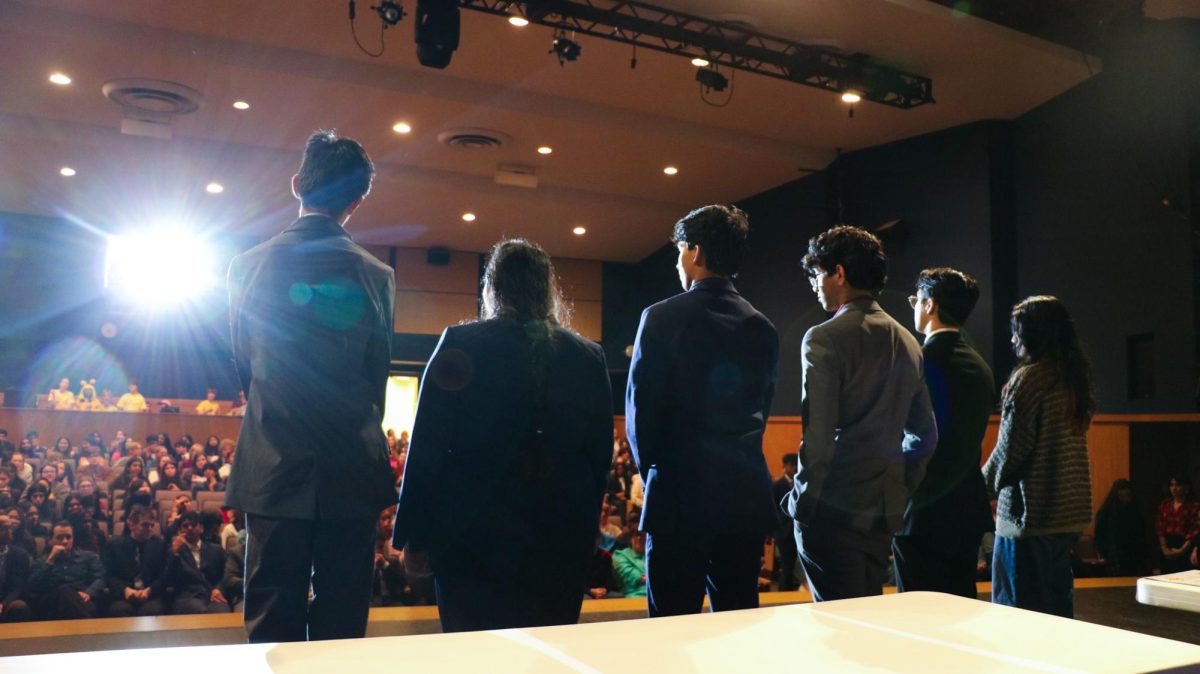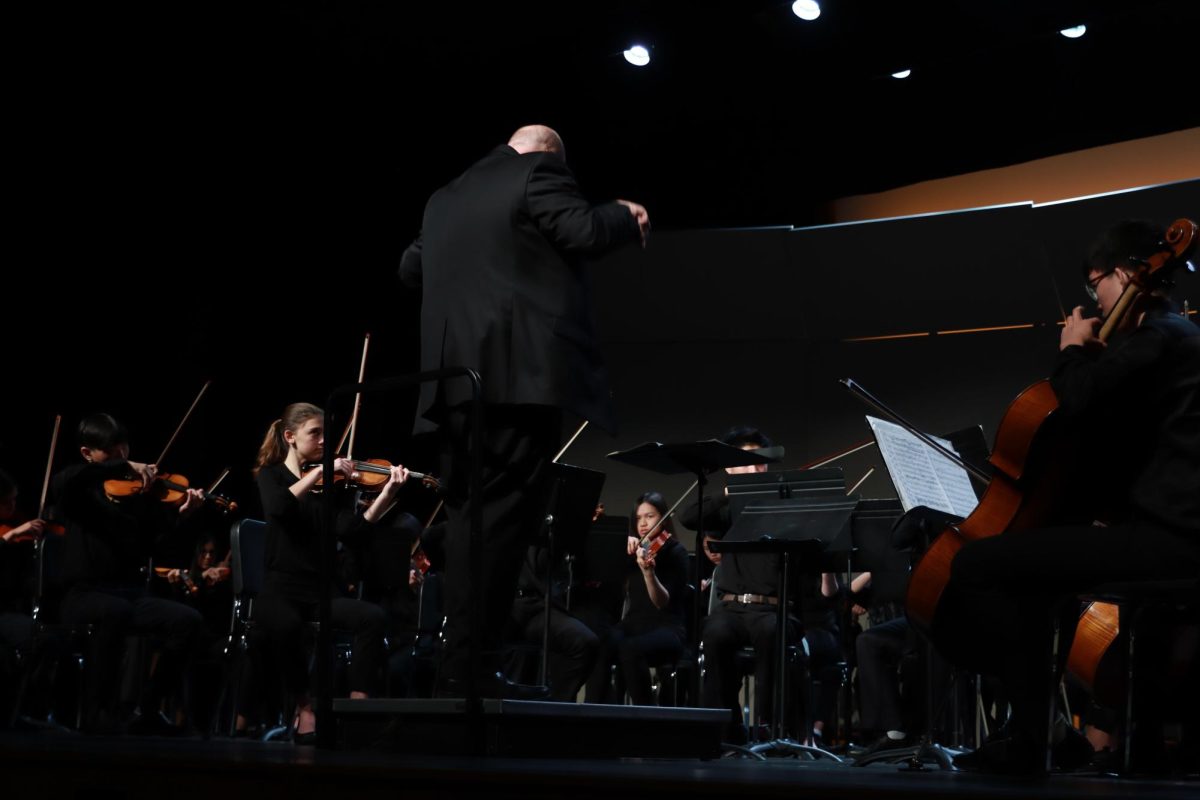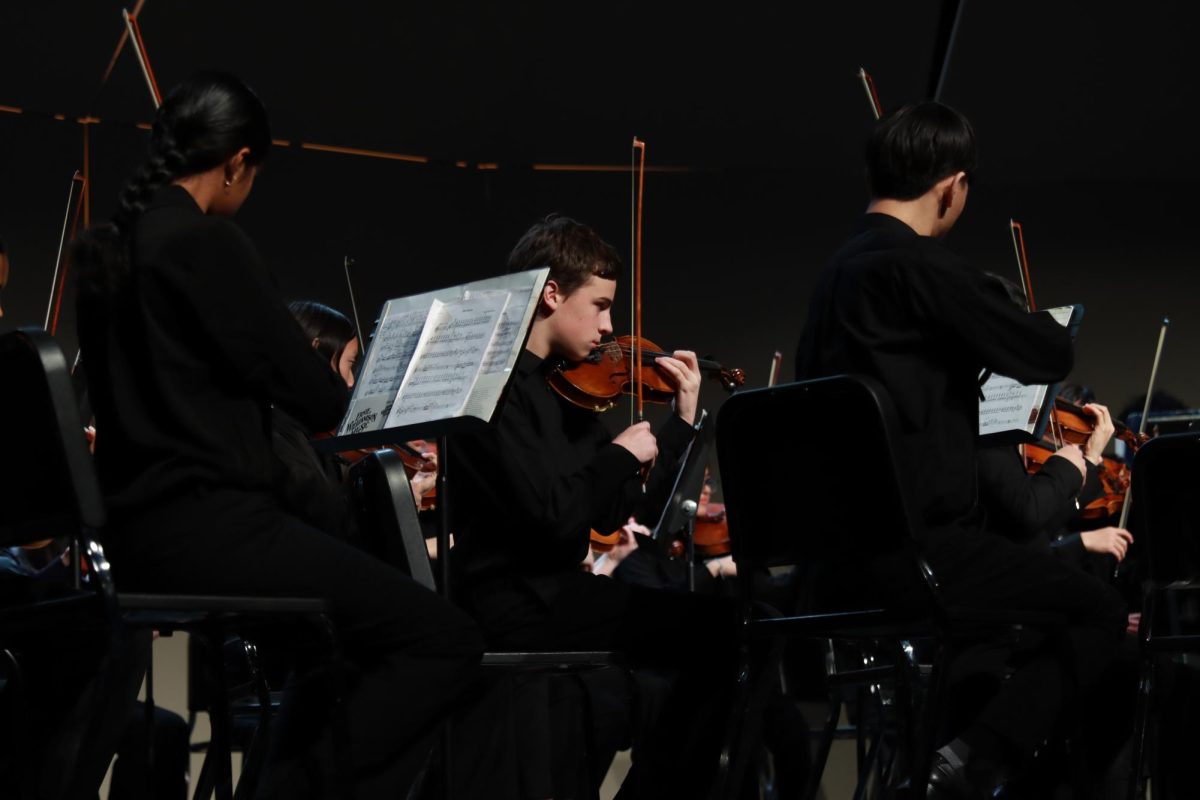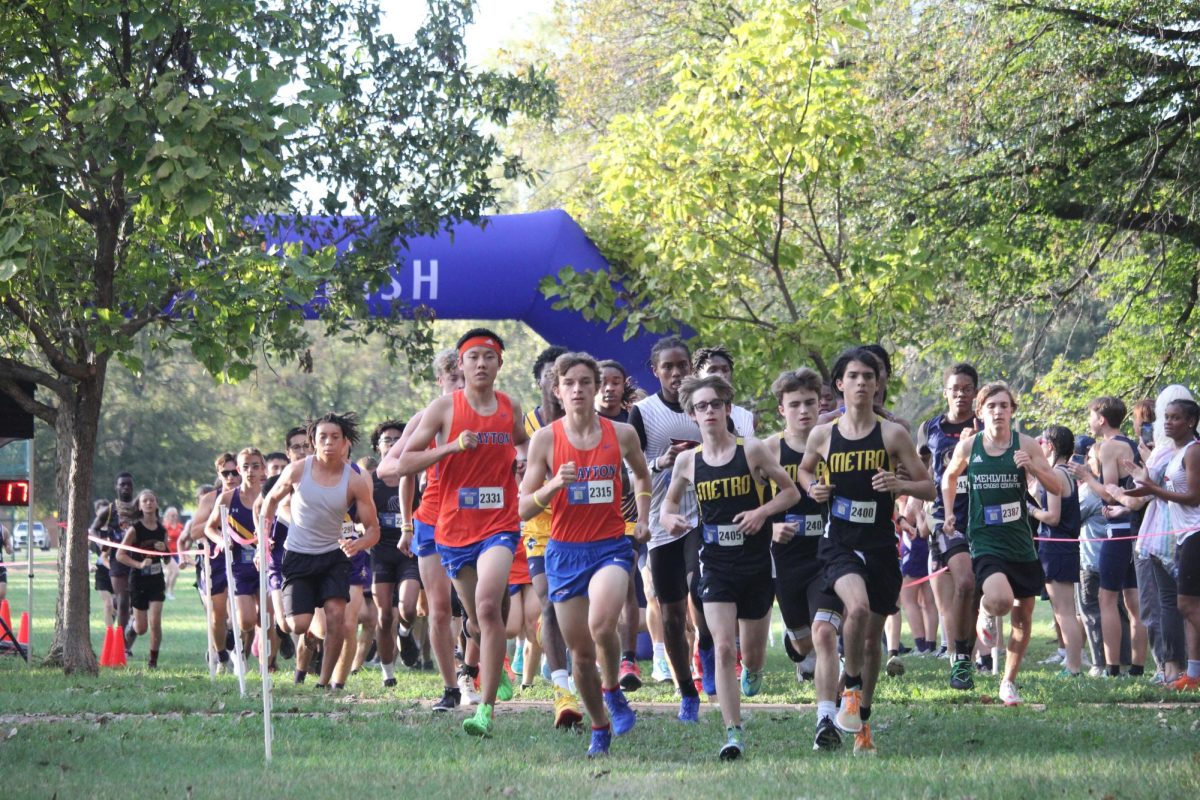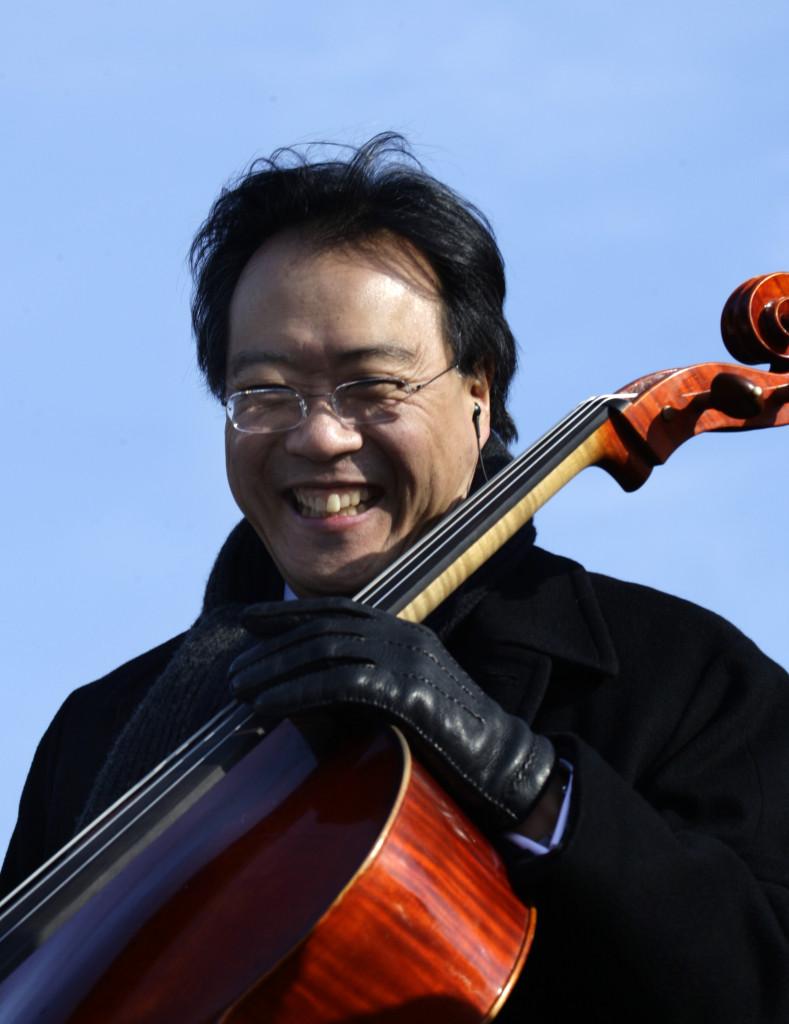
The walls glinted with the shine of mirrors and were tinted by the red of velvet curtains. Daylight glanced onto the marble floor from ceiling-high windows. Dangling overhead were three crystal chandeliers.
On the afternoon of Oct. 19, in the main lobby of Powell Symphony Hall, the legendary Yo-Yo Ma spoke with the Saint Louis Youth Symphony Orchestra. Asian-American with graying black hair and a warm face wrinkled from smiles, Ma, 58, came to Saint Louis to perform at the Red Velvet Ball with the Saint Louis Symphony in Powell Hall.
Second violinist for the Youth Orchestra (YO), CHS sophomore Madeleine O’Reilly-Brown was invited, along with other YO members, to attend Ma’s morning rehearsal and his later Q&A session on the day of his concert.
“I knew Yo-Yo Ma was probably the most famous cellist in the world,†O’Reilly-Brown said. “Where there are a lot of famous violinists, I know only one famous cellist.â€
Famous goes only so far in describing Ma and his incredible life. At an early age, hard work and dedication landed Ma in the world’s spotlight.
Ma began studying cello when he was four and had his first public performance at five. By the age of seven, the child prodigy had played before American Presidents Dwight D. Eisenhower and John F. Kennedy.
CHS junior Adam Garrett, YO violist, also attended Ma’s rehearsal and Q&A session. Like many before him who have experienced Ma’s playing, Garrett was enchanted.
“I loved listening to him. The man can play,†Garrett said. “It doesn’t even look like he’s holding the cello, it looks like he’s going to drop it at any second.â€
Garrett recounted the most memorable moment during Ma’s rehearsal.
“He just does the funniest things,†Garrett said. “One time while he was plucking the strings, he put his bow in his mouth just so we could see it.â€
Ma studied at Juilliard School at 19 and later attended Harvard University, where he received his bachelor’s degree in 1976. For a man with such serious accomplishments, Ma has a surprisingly light hearted side.
“I realized he’s funny,†Garret said. “He pretended to be afraid of the person that was leading the discussion. He was also really kind, I mean, someone asked if they could have a hug, and he gave them a hug.â€
Many who got the chance to meet the cellist noted this amiable side of Ma. YO Conductor Steven Jarvi praised the cellist for, above all, his energy.
“Yo-Yo-Ma is not only one of the most energetic classical musicians in the world, but he’s one of the most energetic people I’ve ever met,†Jarvi said. “He brings an energy and enthusiasm to everything he does that’s absolutely infectious, and that energy brings out the best in everyone around him.â€
On Saturday, Ma’s energy was displayed on stage as well as off, through not only his vivid musical interpretations but his impassioned dialogue.
“I’m like a pig in … whatever. Because everybody is so alive and committed and there is nothing that makes me more excited,†Ma said. “There’s nothing that is more depressing when you look over at someone that is half asleep, because then I don’t know what I’m doing there.â€
What makes Ma special is his commitment to society and the people in it. In fact, Ma’s goal in public performance thoroughly reflects his ideals.
“For me, nothing is ever real in performance until something that I think is really great is received by someone else and they remember or they do something with it,†Ma said. “It’s not about the education, it’s more like somebody is living in somebody else.â€
In addition to explaining his purpose, Ma helped the YO members better understand their own reasons for playing musical instruments.
“If you just say ‘I want to play the oboe for the rest of my life,’ that’s great,†Ma said. “But why do you want to play the oboe? What does it do for you and what can it do for someone else? Once you do that internal investigation, I think it’s really important to then look around you in your neighborhood and say, what’s missing, where is there a need in society that is not being met?â€
Music, classic and pop, has a significant effect on communities around the world. Ma believes he knows the reason for why music ultimately has an impact on people.
“I have a wonderful friend who is a neuroscience person, and he says that he thinks music is one of those things in society that is like a lever that gets us back into equilibrium,†Ma said.
Equilibrium, in physics, is a state in which all forces are balanced. If there is one way a musician can help his or her community, it is through the balancing effect of music.
“You all love music, so the question is, what’s our purpose?†Ma said. “It is about making equilibrium work in society. And by society, it’s your immediate neighbor, your partner building, it is your ten-block area, it’s your school. What’s going on that is right or not right? And then it goes to your city, your state, your country and your planet. That’s what we do.â€
While hearing Ma speak, an aspect of the cellist’s character, separate but connected to his music, manifests itself.
“He’s a people person,†Garret said.  “He said that if he weren’t good at the cello, he would do something else that involved people. He [plays the cello] because he’s able to make a difference.â€
Perhaps being good with people will help Ma solve an internal battle that every young musician faces: determining whether or not to pursue a career in music.
For the many uncertain individuals, Ma had just the right piece of advice to offer.
“If you’re committed to music, then I think you have a gift,†Ma said. “You have something that’s very special. It’s a gift that never stops giving until you break it, and I don’t mean your instrument, I mean until you get cynical, until someone says, ‘You can’t get a job doing this! You can’t make a living!’ That’s an immediate kind of struggle when you say, ‘Hey I want to be a musician, I really love it!’â€
Ma believes that there are plenty of opportunities out there for musicians. With the right push and some luck, ideas may be turned into opportunities, and opportunities into jobs.
“There are jobs that are posted and listed, and then there are jobs that are invented, every job that is posted, is the result of being invented,†Ma said. “You want to have faith in the love and you want to be practical. Unpack your talent; figure out what it is that draws you into music. Maybe you love anything that has to do with people and for me, it’s like, I love people, so music became a natural thing.â€
Ma’s life is one that is full of love. The cellist loves his music and shares his love of music with the rest of the world, which he also loves. The Youth Orchestra was fortunate to have been able to share in Ma’s world of music.
Weeks after his visit to Saint Louis, Ma’s words continue to occupy the minds and hearts of CHS students.
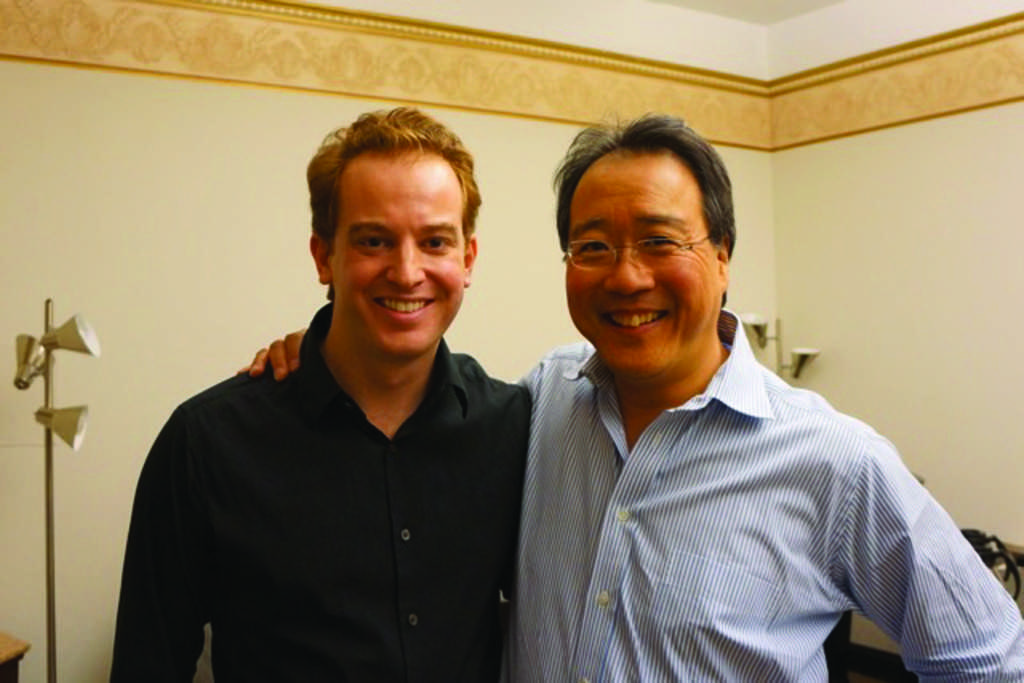
“I’ve taken a different attitude towards my practice,†Garret said. “I’m really trying my best to make sure what I do is important and not just me frivolously spending my time.â€
It is impressive how much of an influence a meeting with Ma can have on the perspectives of young musicians.
“I think a lot of high schoolers go into music thinking, ‘this is a good way for me to get into college,’ but music isn’t the kind of thing that you should abuse that way,†O’Reilly-Brown said. “I almost gave up violin last year because I got so into that mindset that it was just miserable when I practiced. But Yo-Yo Ma reinforced the idea that you should be playing music for yourself and for your community and not because it’s another box to check off.â€
With each stroke of the bow, every ringing note or word spoken to a group of aspiring young people, Ma steadily chips his mark into the world.
“The most basic thing about music is you love it and you give to it,†Ma said. “You never give that up, even if you do something else. You still love it.â€
The story of Ma’s success is in itself inspirational; however, Ma’s legacy is contained not within his talent, but within what he chose to do with his talent. To Ma, it really does not matter what he does, just that he chooses to do something he loves. That is how he defines success.




